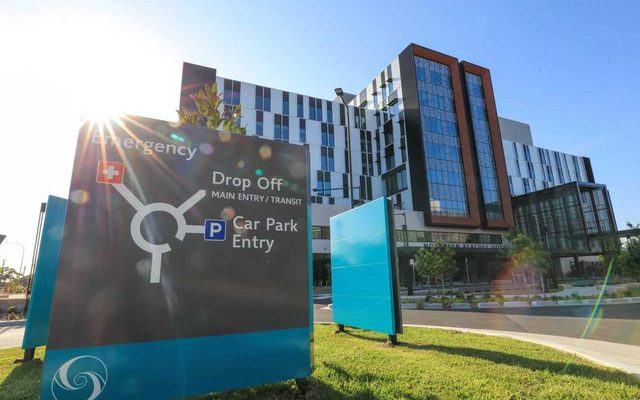This article is from the Australian Property Journal archive
WESTFIELD shopping centres owner Scentre Group has felt the brunt of the COVID-19 pandemic and said the industry, by providing over $1.6 billion in rent relief, has done more for small and medium (SME) enterprises and non-SME businesses than most government pandemic support packages.
Scentre unveiled a half year loss of $3.613 billion days after the landlord reportedly locked out 129 stores in a rent dispute. The statutory result was largely due to a plunge in property values of $4.08 billion.
The trust’s funds from operations has fell to $361.9 million compared to the $670.5 million in the previous corresponding period. Operating earnings, FFO and the statutory result including a charge of $232 million related to the financial impact of the COVID-19 pandemic.
Operating earnings per security was 6.94 cents versus 12.09 cps in the pcp and FFO per security was 6.96 cents compared to 12.64 cps in the pcp.
Despite the loss result CEO Peter Allen said Scentre has adapted to the significant changes brought about by the COVID-19 pandemic, demonstrating the long-term resilience of its business.
“A fundamental strength of our business is the strategic location of the group’s network of 42 Westfield living centres. Our centres are in close proximity to the most densely populated urban areas with more than 16 million people living within a 30-minute drive of one of our centres.
“At the onset of the pandemic, we acted quickly to secure additional funding, ensuring we are in a strong financial position to see the Group through and beyond the volatile period,” he said.
So far this year, the group raised or extended $5.8 billion of additional funding, including $3.4 billion of bank facilities and $2.4 billion of long-term bonds. The group currently has available liquidity of $4.4 billion, sufficient to cover all maturities to January 2023.
Allen said customers are returning as restrictions are lifted with more than 93% of retail stores open across the portfolio (excluding Victorian centres). Portfolio occupancy was 98.8% at the end of June 2020.
Last week it was reported that Scentre has locked out 129 Mosaic stores including Millers, Rockmans, Noni B, Rivers, Katies, Autograph, W Lane and Crossroads over rent dispute.
Allen said Scentre led the development of a voluntary code of conduct which was designed to target appropriate assistance and support to small and medium sized retailers (SMEs) during the pandemic.
“The Code of Conduct (the Code) was mandated by governments throughout Australia and we voluntarily applied these principles to conversations with our New Zealand SME retailers.
“We acknowledge that this has been a difficult time for our customers and our retail partners. We have supported our retail partners throughout this period on a case-by-case basis. We have done this without receiving financial assistance from government,” he added.
“We have agreed arrangements with 2,438 of our 3,600 retail partners, including 1,624 SME retail partners. Importantly, the structure of our leases with our retail partners has not changed and remains based on the mutual agreement to pay a fixed rent.
“The shopping centre industry has provided over $1.6 billion of support for retailers during the pandemic. Our industry is unique in that it has provided, and self-funded, a level of financial support beyond any other industry as well as most government pandemic support packages,” Allen said.
A recent Deloitte Access Economics report warns extending the code could cost commercial property landlords as much as $14.9 billion, far exceeding any state or territory governments COVID-19 cash support.
SME retail partners represent approximately 30% of Scentre’s rental income. Under the SME Code, SMEs are able to reduce the amount of cash rent payable commensurate with the decline in sales they may have experienced during the pandemic and post pandemic period.
For the six-month period, the group collected 70% of gross rental billings and for the months of June and July 2020, gross rental billings collections were over 80%. The gross rental billings used in calculating these collection rates have not been adjusted for the impact of applying the code and its impact in reducing the actual amount of cash rent collectible during the period.
Scentre reported that in-store sales were impacted by the pandemic, falling 8.1% compared to the pcp, and specialty in-store sales were 12.1% lower.
Ratings agency Moody’s Investors Service vice president Matthew Moore said Scentre’s results are credit negative and highlight the challenging environment for retail landlords, with materially lower earnings, weaker rent collections and substantial expected credit charges.
“Scentre’s rent collections were down approximately around 48% in the June quarter, reflecting the impact from COVID-19, rental assistance and government restrictions. We expect Scentre’s credit metrics will deteriorate materially in 2020, given increased net debt, reduced asset values and our expectation for significantly lower full-year earnings,” Moore predicts.
“Nevertheless, the group’s operating metrics have started to improve, with cash collections holding at or above 80% for June and July. Coupled with store openings and customer visitations recovering towards pre-COVID levels, this improvement should underpin higher earnings and cash flow for the second half of 2020 and through 2021. Scentre’s balance sheet initiatives to improve liquidity and pre-fund debt maturities also support its credit profile amid the very challenging operating environment.
“The group’s ability to maintain an appropriate credit profile for its ratings will ultimately depend on its ability to sustain an improving trend in operating metrics over the next 12-18 months, and on its ability and willingness to reduce debt in line with the decline in earnings.” Moore concluded.
Meanwhile the Carindale Property Trust reported FFO of $20.5 million but a statutory loss of $107.7 million for the year, including property valuation decline of $124.4 million.
The trust collected $49.7 million of cash inflow, achieving a net operating cash surplus of $17.3 million for the 12-month period. Gross rental collections for the second half of the year were 71% of gross rental billings and for the month of July, the trust collected 78% of gross rental billings.




